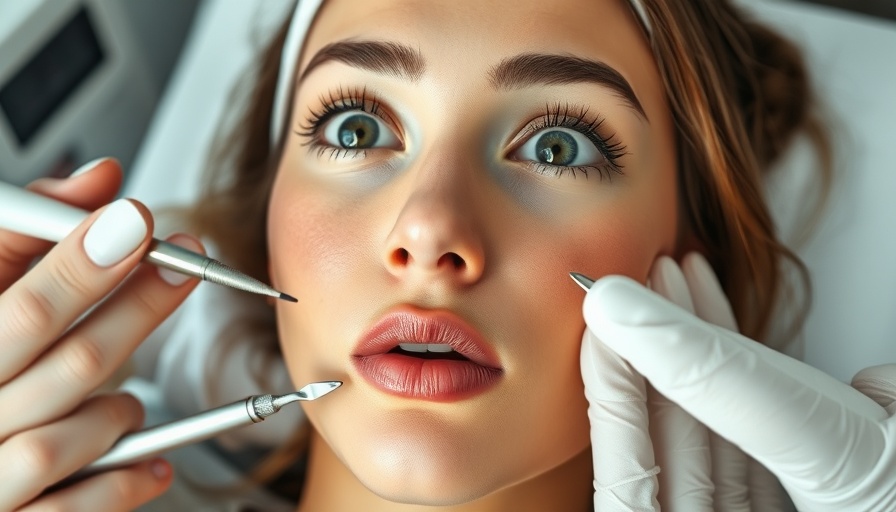
Unveiling the Truth: The Myths Surrounding Silicone in Skincare
In the vast and ever-evolving world of skincare, few ingredients have sparked as much debate as silicone. While beloved by many for its smooth, gliding application and skin-hydrating properties, silicone is also mired in misconceptions and myths. With recent discussions gaining traction, it’s time we peel back the layers and explore the truth behind 13 common silicone myths and why understanding them matters.
Silicone: A Skin-Friendly Ingredient?
First, let’s address the elephant in the room: Is silicone bad for your skin? The short answer is no! Silicone is, in fact, a skin-safe ingredient frequently found in many beauty products. Its primary use is to provide a silky smooth texture and form a protective barrier on the skin. This quality helps lock in moisture and keeps environmental aggressors at bay.
However, there are critics who argue that silicone can clog pores, which leads us to our next myth:
Myth: Silicone Clogs Pores
This is where the skincare landscape can be confusing. The truth is that not all silicones are pore-clogging; in fact, most cosmetic grades of silicone, such as dimethicone and cyclopentasiloxane, are non-comedogenic, meaning they don't cause breakouts in most people. This misconception often stems from misconceptions about occlusive products in general rather than an inherent issue with silicones.
Common Misconceptions Debunked
Let’s tackle more myths and unveil common misconceptions surrounding silicone in skincare:
- Myth: Silicone is Harmful. While some assume that synthetic ingredients like silicone pose health risks, research shows that cosmetic-grade silicones are safe. They undergo rigorous testing, ensuring they are suitable even for sensitive skin types.
- Myth: Silicone Prevents Product Absorption. A frequent argument against silicones is that they act as a barrier, hindering the penetration of beneficial ingredients. In reality, silicones are often used alongside active ingredients that are designed to penetrate the skin, enhancing the overall effectiveness of formulations.
- Myth: All Silicones Are the Same. Not all silicones are created equal! From lighter options to heavier variants, different types serve distinct purposes in formulations. Knowing which silicone to use for your specific needs is essential.
The Role of Silicones in Modern Skincare
As consumers and skincare enthusiasts, it’s imperative to recognize the evolving role of silicones in modern formulations. The rise in evidence-based skincare has prompted a demand for transparency, which means better education on the ingredients we apply to our skin.
In recent discussions, experts highlight that while silicones may not be the first choice for everyone, they serve valuable functions in many formulations, from primers to foundations. The inclusion of silicones doesn't mean a product is low-quality; instead, it often indicates a carefully crafted blend of ingredients designed for optimal performance.
Future Insights: The Continuing Evolution of Skincare Ingredients
As we move toward more tailored skincare experiences, understanding the role of ingredients like silicone will continue to be vital. Expect to see more formulations leveraging the benefits of silicones alongside natural, sustainable ingredients. This balance aligns with the growing consumer interest in products that combine effective performance with ethical principles.
Decisions You Can Make With This Information
Knowing the facts about silicones can empower you as a consumer. Avoid falling victim to misinformation! When shopping for skincare products, don’t shy away from those that include silicone. Instead, consider how they fit into your skincare regimen, focusing on your skincare goals rather than widespread myths.
Actionable Tips for Skincare Enthusiasts
Ready to embrace the science behind your skincare? Here are actionable tips to help you navigate the world of silicones:
- 1. Research Ingredients: Get comfortable reading ingredient labels and researching products. Don't hesitate to learn about each ingredient and its purpose.
- 2. Consult Professionals: Work with skincare professionals who understand the ingredients and can offer tailored advice suitable for your skin type.
- 3. Limit Misinformation: Engage in discussions and seek out evidence-based resources to clarify any doubts you may have about skincare ingredients.
As skincare enthusiasts, building a foundation of knowledge about what we apply to our skin helps us make informed choices tailored to our unique needs. Engage with the community, ask questions, and advocate for transparency in skincare! As the landscape continues to change, being equipped with the right information is essential.
Join the Conversation!
Let’s bust these myths together! Join the discussion on social media and share your insights on skincare. Dive into learning more about various ingredients and their true benefits.
 Add Row
Add Row  Add
Add 




Write A Comment